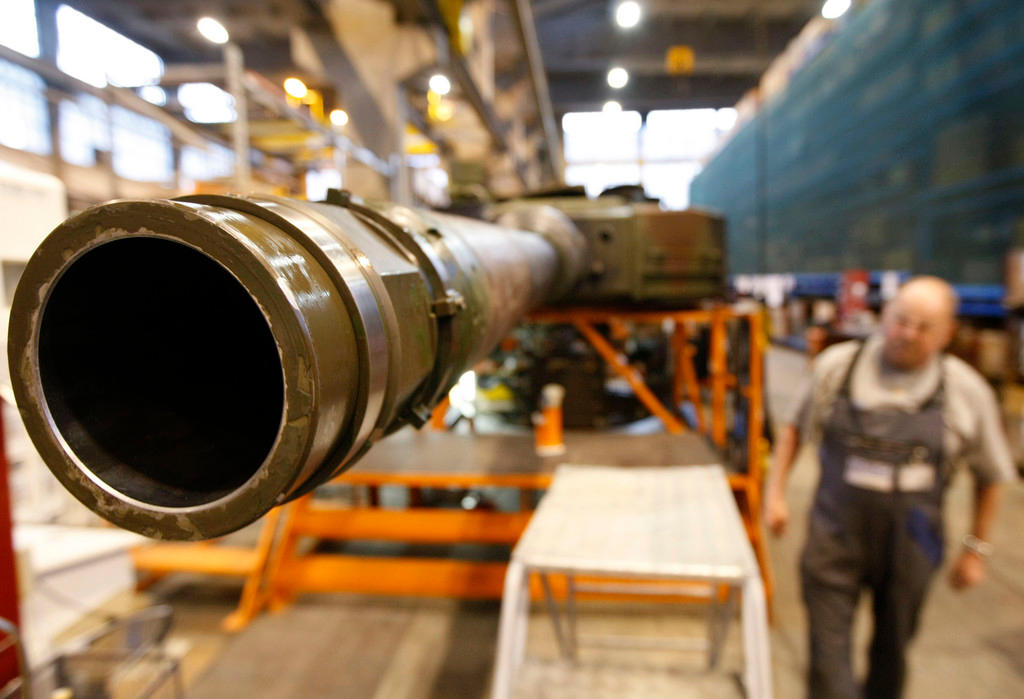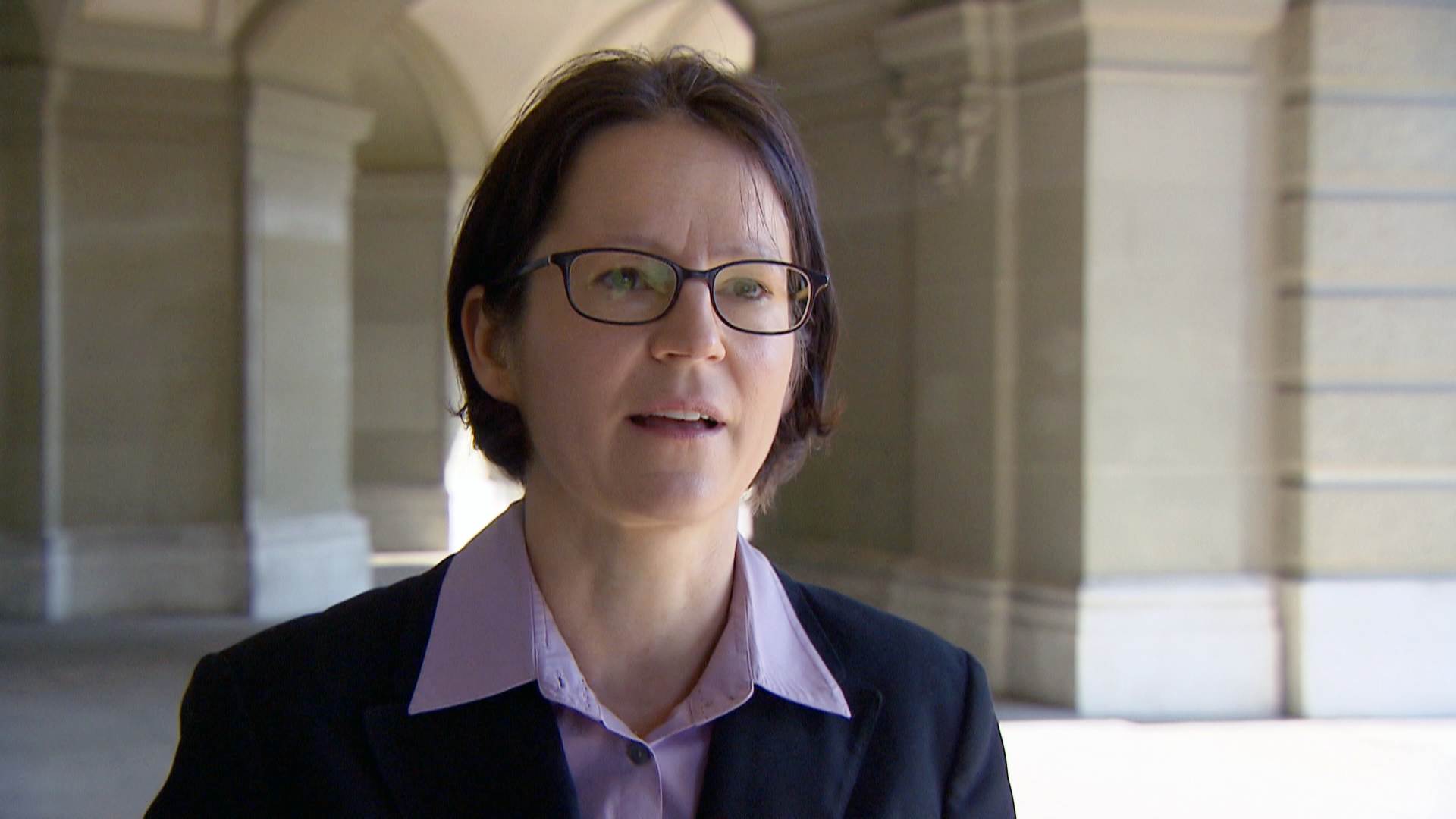
Uncensored report on arms exports reveals shortcomings

Regulations for exporting weapons are easy to exploit and the Swiss authorities approve almost all export requests for war materiel. These are some of the findings of an unredacted report by the Federal Audit Office (FAO) obtained by Swiss public television, SRF.
The report, carried out by the FAOExternal link on behalf of the State Secretariat for Economic Affairs (SECOExternal link) and the economics ministry, shows that almost 99% of export applications were granted in 2016. In addition, when it came to checks in critical countries, only a few of the weapons delivered could be verified.
The fact that SRF’s RundschauExternal link news programme received the document in its entirety and unredacted was “regrettable”, FAO director Michel Huissoud told the Swiss News Agency. He said leaking the confidential report was a criminal act and those responsible could be prosecuted.
According to the report, in 2016 the Swiss government rejected only 29 applications with a value of CHF17 million ($17.5 million). This compared with 2,395 approved applications worth CHF2.195 billion.
It also reveals that the state-owned defence company RUAGExternal link planned to exploit a legal loophole to export Cobra mortars via Finland to Qatar. Exports to Qatar are forbidden because of the Yemen War. RUAG has since announced it has stopped the project.
The Swiss government constantly adapts the rules for weapons exports behind closed doors, according to Rundschau. The FAO report shows that since 2000 there have been 11 governmental rulings. Evelyne Schmid is one of the top experts when it comes to arms exports and international law. She believes that decisions concerning weapons exports should be treated more openly:

More
‘Everyone should know what the rules are’
In June, the government proposed allowing weapons to be exported to countries in the throes of internal conflict provided it could be established that they would not be used by warring parties. However, the FAO says it is currently possible to sidestep existing restrictions using perfectly legal measures.
One such loophole is a provision that allows a certain amount of weapons parts to be shipped to intermediate third countries for assembly without the need for an agreement that forbids the re-export of the finished articles to other states.
In its report, the FAO gave examples of these so-called “alternative export opportunities”, such as tanks that ended up in Qatar via Canada and pistol parts that made their way to Saudi Arabia after passing through the United States.
Companies can also sidestep stricter scrutiny by arguing that armaments are designated for civilian use. This includes the case of telescopic rifle scopes being shipped to Iran via Italy.
The FAO recommends that these loopholes be made more transparent. It also calls on SECO to make more rigorous audits of Swiss weapons producers rather than rely on post-shipment checks abroad. SECO should also have more distance from companies and lobbyists that represent the industry, the report concludes.
SECO has carried out post-shipment checks since 2012 – with limited success, according to the unredacted report. For example, in 2014 only 11 out of 26 Piranha tanks in Brazil and 25% of all guns in Ukraine were checked. In 2015, just 113 of 500 guns underwent checks in Mexico.
For its part, SECO criticised the “one-sided” and “arbitrary” report, accusing it of being politically motivated and containing numerous errors and exclusions of important facts. SECO also hinted that the FAO may have overstepped its legal mandate in compiling the report.
Earlier this month, Peter Maurer, president of the International Committee of the Red Cross (ICRC), slammed Switzerland’s mooted relaxation of war materiel exports, saying such a move would damage the country’s “humanitarian profile”.

In compliance with the JTI standards
More: SWI swissinfo.ch certified by the Journalism Trust Initiative




























You can find an overview of ongoing debates with our journalists here . Please join us!
If you want to start a conversation about a topic raised in this article or want to report factual errors, email us at english@swissinfo.ch.